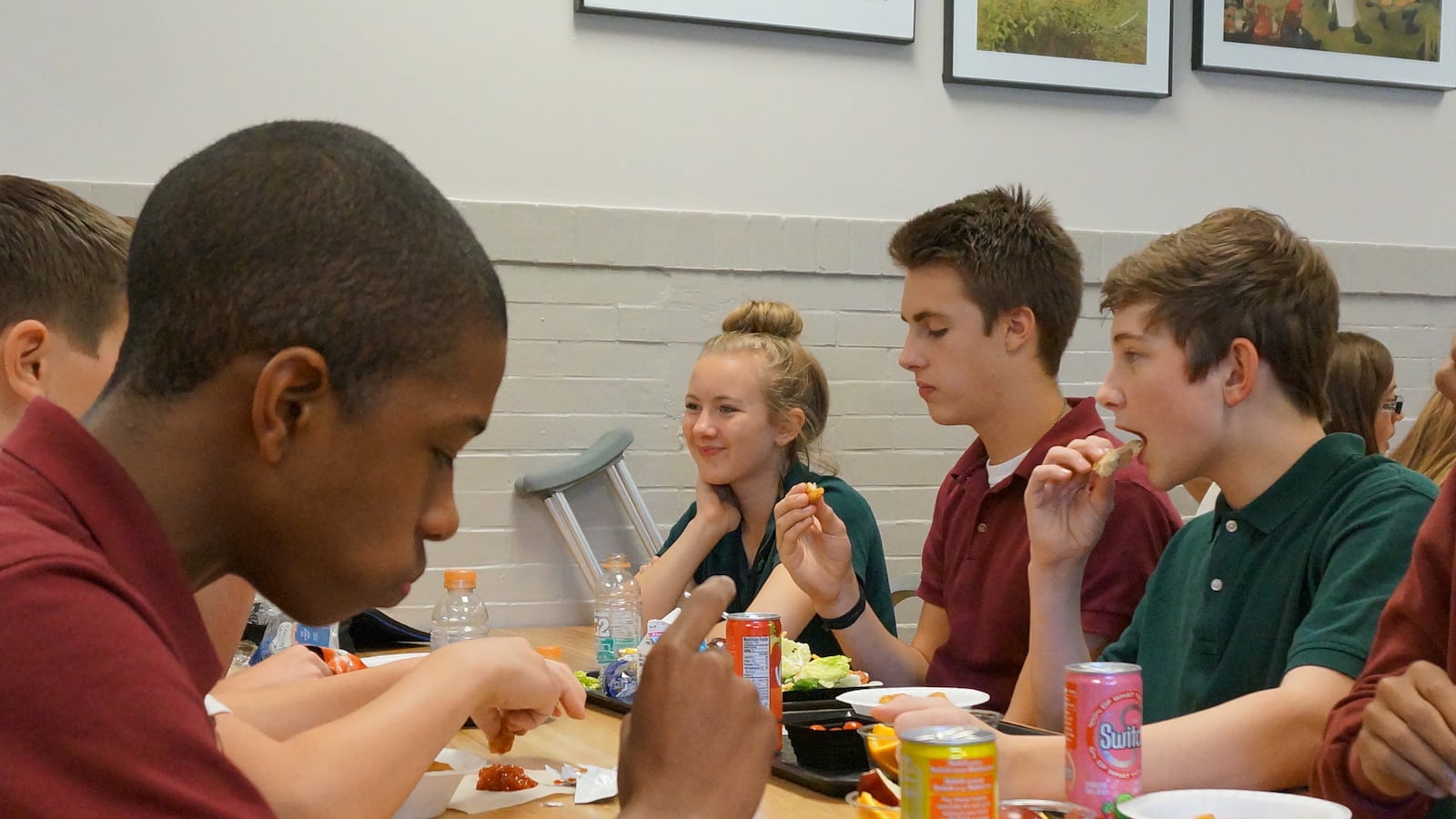The two women running for Indiana’s top education job differ on many policy issues, but one of the clearest differences between them is their positions on vouchers.
Current state schools Superintendent Glenda Ritz, a Democrat up for re-election this fall, has vehemently opposed vouchers since she took office in 2012. Her challenger, Republican Jennifer McCormick, said she is supportive of them, but not looking to expand the program.
“I’ve been a huge proponent of parents being allowed that choice,” said McCormick, the superintendent of Yorktown schools.
Indiana now has one of the largest voucher programs in the country with 32,686 kids across the state — nearly 3 percent of Indiana students — potentially getting thousands of dollars a year from taxpayers to spend on private school tuition.

The Republican-led state legislature has expanded the program even further since the state’s voucher law first passed in 2011, opening up the program to more students and allowing them to apply for vouchers during both fall and spring semester, among other changes.
The state’s program is far more expansive than those in other states, which typically only apply to certain students, such as those with special needs or whose families meet a specific income threshold.
But some lawmakers want it to go even further and last year proposed creating “education savings accounts,” which would give parents broad discretion over how to spend their children’s state education dollars, even allowing them to spend public money on homeschooling or exam fees.
Ritz has been a consistent voice against such expansions. Although the superintendent has said she’s not looking to scale back the program that’s already in place, she’s said there’s no need to further tap public resources for private schools.
“We already have school choice in place, so those (existing vouchers) would remain to be in place as they are,” Ritz said earlier this year. “What I’m really talking about is let’s not expand how you get school choice.”
The superintendent has no direct power over whether vouchers expand, as evidenced by the fact that Ritz has not been able to stop recent expansions, but the state’s top schools official can play a role in influencing the debate.
If McCormick gets the job, vouchers might not have new advocate, but her opposition is decidedly less fierce.
Like Ritz, McCormick has spent her career working in the public schools, and she says she believes parents should be able to decide what kind of school their children attend. And that means both charter schools and vouchers.
“It’s important that parents know if another school was a better fit, so be it, I will help you find that,” McCormick said.
However, McCormick has also clarified her position, stating she’s not looking to expand the program or others that would divert money from public schools.
Vouchers have been a polarizing topic across the state, not just in the capitol.
Betsy Wiley, head of the Indiana Institute for Quality Education, a local school reform organization, said she’s looking for a candidate who supports vouchers and school choice, viewpoints that align with her organization’s.
“We obviously believe that a parent or family should be in control of that decision,” Wiley said. “The current administration has made it clear that they are not big fans … or at least skeptical of charter schools and vouchers and anything other than the traditional public school setting.”
But voucher critics are also numerous, including the state’s teachers unions and public school educators from across the state. They see vouchers as a way to siphon money away from public schools to support private schools. At a legislative hearing earlier this year on a voucher bill that eventually became law, multiple parents and educators stood up and said vouchers were a drain on public school resources.
Teresa Meredith, president of the Indiana State Teachers Association, noted at the time that more than half of kids who use vouchers have never attended public schools — and never would have.
The program “is really not helping the kids that it was promised to help,” she said. “It was sold to the state that this was desperately needed to help these children in low performing schools … and it’s not actually saving taxpayers anything.”

